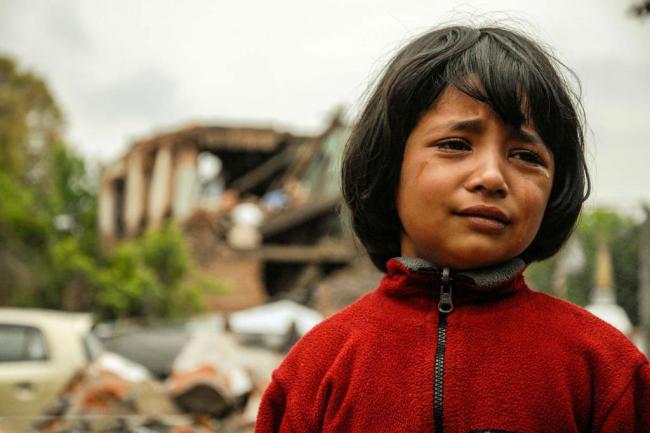23 Jun 2015

The children's agency is working with the Government and the Nepal Police to reduce the risk of trafficking through targeted action and policy measures.
“UNICEF feared a surge in trafficking cases after the two earthquakes”, said Tomoo Hozumi, a UNICEF representative in Nepal over the weekend. “Loss of livelihoods and worsening living conditions may allow traffickers to easily convince parents to give their children up for what they are made to believe will be a better life.”
The traffickers, he stressed, promise education, meals and a better future. But the reality is that many of those children could end up being “horrendously exploited and abused”, Mr. Hozumi warned.
Trafficking was rife in Nepal even before the 25 April earthquake, with an estimated 12,000 children trafficked to India every year, according to a 2001 International Labour Organisation (ILO) study.
Girls not recruited into prostitution could be also sold as domestic slaves in India and other countries and boys taken into forced labour. After disasters such as earthquakes, there is a risk that trafficking will increase.
Families may also be more easily convinced to send their children to orphanages in Kathmandu and Pokhara, UNICEF noted, a trend that began following the civil war with promises of safety and education.
Prior to the Nepal earthquake, approximately 15,000 children lived in child care homes in Nepal, and were potentially at risk of poorly-regulated adoption, exploitation and abuse. More than 85 per cent of these children had at least one living parent.
UNICEF has been working closely with the Nepalese government – who has suspended international adoption right after April 25 – and other partners to speed up and bolster the response on child trafficking prevention, including by supporting the police to establish or strengthen almost a hundred checkpoints and police stations throughout the country and the earthquake affected districts.
The Funds is also providing support to national NGOs, as well as all relevant actors, to confirm that all alleged cases of trafficked are verified and all children accounted for through the strengthening of information management and coordination systems.
In addition, UNICEF has spearheaded an awareness and public information campaign on child protection in Nepal following the earthquakes. To date, 40,000 flyers on prevention of family separation and trafficking have been distributed in all 14 affected districts, including to police stations, IDP camps, communities and local organisations.
To raise awareness on the negative consequences of 'Orphanage Voluntourism', UNICEF has been working closely with the tourism and volunteering sectors. Forty national and international agencies that recruit volunteers for orphanages in Nepal have been identified and encouraged to discontinue their orphanage volunteering programmes, eight of them already having suspended their volunteering programmes in Nepal.
“To re-build damaged rural communities and keep families together is the best way to help children in Nepal to recover from the earthquake,” Mr Hozumi concluded.
Photo: UNICEF/NYHQ2015-1113/Anthony